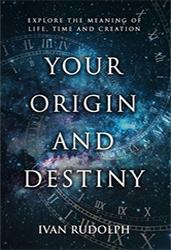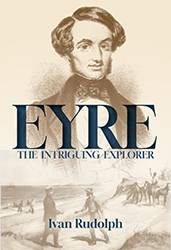Can we successfully copy Eyre’s approach?
Now we return to the central conclusion, that Eyre was not successful because of his theories, but because of his practices. For that reason, he may still have a valid contribution to make to modern Australia.
Somehow, the implementation of Aboriginal policy needs to be changed. Even today there are many armchair theoreticians about Aboriginal policy. Indeed, policy has see-sawed alarmingly over the years with little true progress being made.
The key issue is not so much the policy, although that can always be improved upon particularly by working together in an equal relationship and consultation with the Aborigines themselves – the true challenge is to create successful implementers of the policies.
Eyre was the forerunner of these practical practitioners and remains a challenging example.
How might Australia develop successful similar practical practitioners?
Once politicians grasp the importance of focussing on the personnel putting into operation the policies rather than simply trying to change policy yet again, by throwing heaps of money at the problems in a never-ending cycle, they will come up with more effective processes than the simplistic suggestions I make below.
Working amongst Aborigines could be upgraded to a new career path with particular training and rewards, and given a new title, perhaps the “The Indigenous Service” or similar, to be organised and directed by a revamped Aboriginal Affairs portfolio or a new government body altogether.
For instance, there should be advance training in the culture, expectations and history of whichever Aboriginal people group that the teacher, doctor, nurse, policeman, politician, agriculturalist or civil servant chooses to serve. When that person begins work there, they would need to be accompanied in all their activities for a period of time by indigenous mentors – a function that Eyre’s Aboriginal interpreters, emissaries and messengers fulfilled for him.
The rewards must be financial, as well as providing all else that is needed for individual or family life, especially for those serving in remote areas. Regular airplane tickets back to cities for generous periods of leave are necessary because any whites that commit to serving Aborigines in this manner are isolating themselves from their own culture, friends and extended family. Obviously, free health care and schooling is a must, otherwise they will not remain in the service long enough to make a valid contribution.
The prestige associated with serving Aborigines in this way must be upgraded until it is similar to that given to those serving in the diplomatic core, and many of the perks could be organised similarly. However, it must become a more extensive career path with many more important positions of authority in it than the diplomatic core has. It needs to be a totally new career choice, but one that is very carefully defined, mentored, audited and rewarded.
The commitment must be contractual in the first instance, and long-term contracts are the only ones that need to be offered because of the expense involved in training each new participant. The rewards for those prepared to undertake further contracts should be substantial. Eyre and Sturt were successful in their interactions partly because of a long-term practical involvement with Aborigines. Too many modern administrators lack experience on the ground. Their contribution becomes short-lived (“too hard”) and too theoretical to be of any practical value. They move on to lesser challenges.
Extensive involvement of Aborigines is essential to the success of such a scheme. They must be invited to participate from planning stages through to implementation. Aboriginal mentors must be carefully trained in their responsibilities and rewarded substantially for their vital input. And for any Aborigines who set their hearts on joining this “Indigenous Service”, specific encouragement and support should be given. The greater the involvement of Aborigines in the service the better it will succeed in the long term.
Effective two-way communication must be a cornerstone. Eyre was a great communicator. In regard to interacting successfully with Aborigines in the communities, aspects of Eyre’s approach might still be adopted beneficially:
First of all, he had the commendation of other Aborigines. His interpreters bore witness to his care, concern and kindness such that tribal Aborigines trusted him and opened up to him. Information regarding his good intentions usually preceded him and smoothed his path.
Secondly, he followed all the local protocols before attempting to discuss issues.
Thirdly, he presented as a concerned friend. Aborigines responded positively to his genuine supportive friendship.
Finally, his approach was inclusive. He would talk at length with anyone who wanted to listen or ask him questions. His interaction with the group was not reserved to those who could understand English, but he communicated with the whole tribal community in their own tongue, with the help of his invaluable interpreters. He wanted the whole community to grasp the issues, young and old, male and female. For progress in modern Aboriginal communities, a similar inclusive process must be followed.
Often the whole group would gather around him and talk as he tried to explain the puzzling things that were happening to their world, in particular the white man’s laws and how these might affect them. He spent thousands of hours doing this simple liaison work, not as a cold callous bureaucrat for a short visit, but as a friend.
Of course the above plans would be very expensive. Eyre dismissed similar economic objections in his day by pointing out that not to do anything would prove far more expensive in the long run, and history has certainly proved him absolutely painfully correct. Think of the monies that would have been saved by positive upgrades in indigenous health and education, for example. Or consider the value of more Aborigines making a positive input into the economy.
Where could the funds be found to establish this new organisation? In Eyre’s day, a portion of all land sales was theoretically to be put aside for Aboriginal development, because they were the original “Lords of the Land.” This was not done faithfully. But perhaps today a portion of all land sales within Australia could be directed towards funding a new scheme for a new day.



